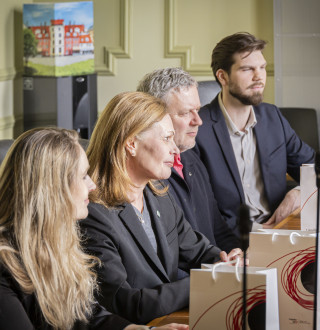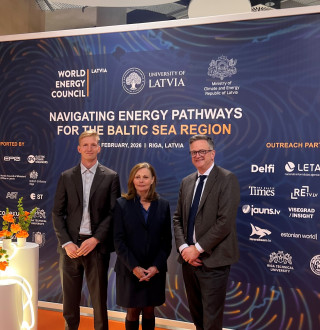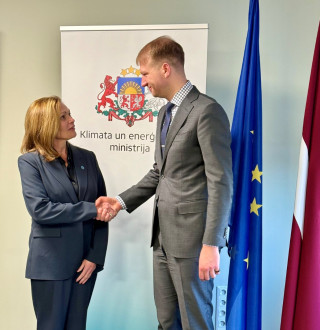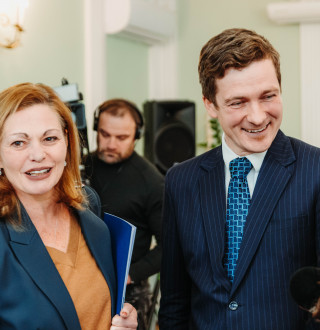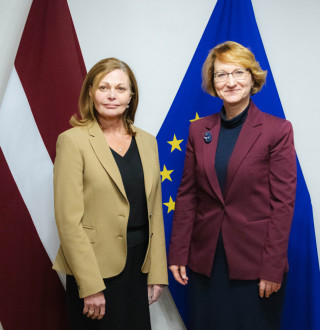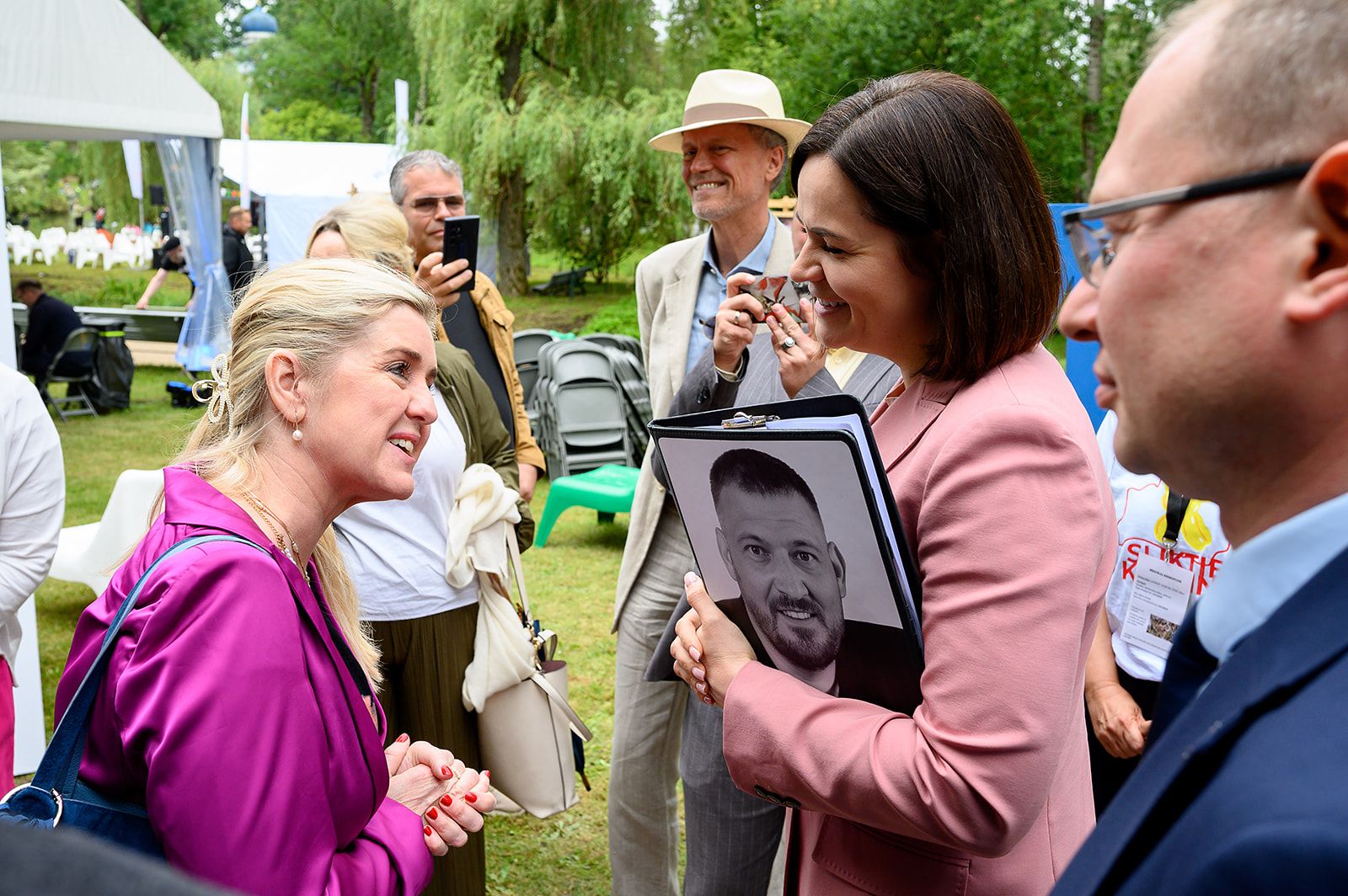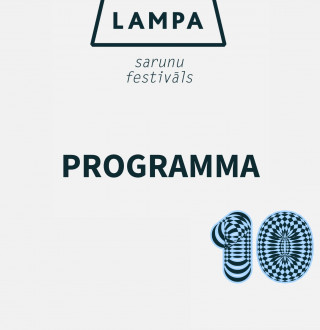Last weekend, the tenth annual discussion festival "Lampa" took place in Cēsis, Latvia. All the Nordic embassies in Latvia, together with the Danish Cultural Institute and the Nordic Council of Ministers Office in Latvia, hosted eleven discussions on a joint stage called “Ziemeļsala” (Northern Island).
Opening of “Ziemeļsala” on July 5th gathered a crowd of Nordic fans and supporters, including festival organizers, media representatives. Belarusian democratic leader Sviatlana Tsikhanouskaya, who attended the Lampa festival for the first time was also present. In the opening speech, Stefan Eriksson, Director of the Nordic Council of Ministers Office, referred to the tradition of similar festivals in Europe, originating from the Nordic countries with a longer history of hosting democracy festivals. Such festivals have helped fostering engagement of the public society and open dialogue between citizens, politicians, government institutions, and non-governmental organizations. Stefan noted the positive remarks from the many Nordic guests at “Lampa” throughout the years, acknowledging the high quality of the festival in terms of content, technical setup, and visual execution.
Stefan also explained the importance for the Nordic countries to support and participate at the festival with a joint Nordic stage for the second consecutive year. He emphasized the strong bond and cooperation between the neighboring Nordic and Baltic regions based on shared democratic values. Moreover, the festival’s overarching goal aligns with the mission of our office – to promote respectful dialogue and provide a platform for new ideas, initiatives, and partnerships.
The first discussion at “Northern Island” focused on Belarus and its place in the Nordic-Baltic partnership once democratic governance is restored in the country. The discussion was opened with a speech by Sviatlana Tsikhanouskaya, who expressed gratitude for Belarus-related topics included in discussions on various stages at the festival. She urged to perceive Belarus as part of Europe, as it historically has been. We were humble and proud at the same time when she referred to Stefan as a symbol of close ties between Belarus and the Nordic countries due to his contribution during the diplomatic service in Belarus.
“Ziemeļsala” stage attracted a lot of attention over the two days. Besides the embassadors of all the Nordic countries represented in Latvia, also the President of the Nordic Council and member of the Icelandic parliament Bryndís Haraldsdóttir attended the festival and participated in two panel discussions – on Belarus and on the topic of Nordics and Baltics being united in security – a discussion with Latvia’s Foreign Minister Baiba Braže, Director of the Latvian Institute of International Affairs Kārlis Bukovskis, and Vice-President of the Baltic Assembly Jānis Vucāns.
Other guests from the Nordic countries were also represented in most discussions on this stage. Katju Holkeri from the Finnish Ministry of Finance and Lars Trägårdh, Swedish historian and writer, joined the conversation about trust, whereas Kai Alhanen, Director and lecturer at the Dialogue Academy in Finland, joined the discussion on opinion polarization featured. A discussion titled “Can Inclusive Design Prevent Social Exclusion and Loneliness?” was part of the Nordic and Baltic relay debate discussing the shared challenge of growing loneliness. The discussion was organized by the Nordic Council of Ministers, the Northern Dimension Partnership on Culture, and the Danish think tank “Mandag Morgen”; moderated by the think tank's Impact Director Jonas Keiding Lindholm.
An exhibition titled “Between the Lines” inspired by Swedish authors and provided by the Embassy of Sweden in Latvia was available at the “Ziemeļsala” for free during both days of the festival.
Events at “Ziemeļsala” were organized in collaboration with the Danish Embassy, Finnish Embassy, Norwegian Embassy, Swedish Embassy, Danish Cultural Institute in Estonia, Latvia, and Lithuania, the Northern Dimension Partnership on Culture, the Latvian National Commission for UNESCO, the World Wildlife Fund, the Baltic Centre for Media Excellence, European Energy Latvia, and the association “Valodu muzejs” (Language Museum). Most discussions were held in English; simultaneous interpretation into Latvian was provided. Video recordings of the discussions are available on the “Facebook” platform and on our YouTube channel.
We are grateful to everyone who visited “Ziemeļsala,” rose challenging questions, and participated in discussions. Each time we strive to improve the content at the joint Nordic stage, and in order to raise the bar your feedback and insights are crucial for us. Therefore, we kindly invite you to share those in a short survey (in English) accessibly by clicking here.
See you in Cēsis in 2025!
